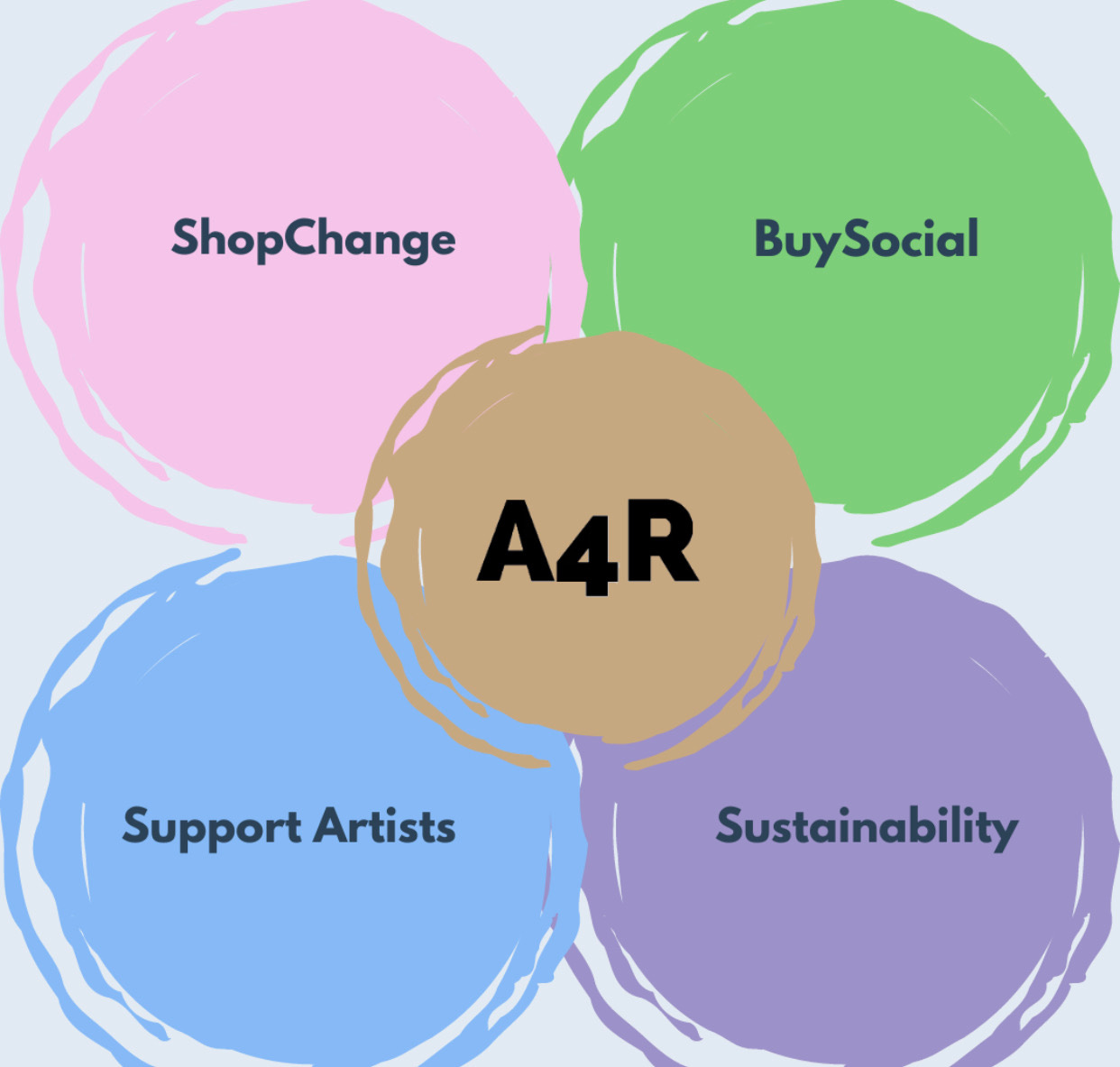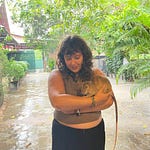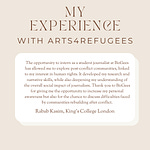‘Post-conflict’ Afghanistan: The Entwinement of Women with Governance
Referring to Afghanistan as a ‘post-conflict’ community may illicit some opposition.
I have used this term as a reference to the actions of the 45th President - Donald Trump – and his Agreement for Bringing Peace to Afghanistan. This agreement with the Taliban decreed that American soldiers would be withdrawn from the region, thus ending a long history of American interference in the region. As a result, Trump’s predecessor Joe Biden would announce the withdrawal of a vast majority of American troops from Afghanistan by September 11th, 2021 – in honour of the 20th anniversary of 9/11. Whilst this was praised by many as shaking the ‘burden’ of Afghanistan – as the war in Afghanistan had cost the US at least US$824.9 billion, as well as the lives of almost 2500 soldiers – it also raised significant questions about what the country would look like.
We certainly know now what Afghanistan looks like post-withdrawal.
Since 2021 the Afghan economy has contracted by almost 30% and the position of women in the nation has worsened significantly – as seen in Afghanistan ranking 177 out of 177 in the Women’s Peace and Security Index.
This article will be outlining the important role of women in post-conflict Afghanistan, and how rebuilding the country cannot occur without them. The oppression of women is deeply entwined with poverty, and thus no one can be free until women are free.
In particular I will focus on the role of IGOs (intergovernmental Organisations) and NGOs (nongovernmental Organisations) and how they attempt to lessen the pains of misogyny alongside the burden of poverty – which I argue are intertwined issues. My article takes a human needs approach – focusing on how IGOs and NGOs are crucial for elevating the position of women and their needs.
Firstly: women are significant in upholding the law, and a comprehensive moral system cannot be established without them, and a law based on acceptable morals (by the international standards) is imperative to the rebuilding of a nation.
The rule of law must have vulnerable groups participate in it in order to be effective, as a function of the law is protection of all. Prior to the Taliban takeover of Afghanistan, women worked as lawmakers and judges, which ensured that violent crimes (especially those against women) faced prosecution.
The United Nations Strategic Framework for Afghanistan (2023-2025) sets out the third priority of “social cohesion, inclusion, gender equality, human rights, and rule of law”. The specific outputs set in the framework argue that justice institutions must become “accessible” with particular reference to “vulnerable groups: women, children, and minorities”.
We have now seen what happens when women are deposed of their influence on the law.
Many female Afghan judges have been hunted or threatened by criminals they convicted, with more than 220 female Afghan judges in hiding – and many having fled the country. It is understandable to see why, as many women have lost their lives: such as Qadria Yasini, Zakia Herwai, and Mursal Nabizada.
Qadria Yasini, who was 53, and Zakia Herwai, who was 47, were both Supreme Court judges in Kabul before they were assassinated in 2021. Mursal Nabizada was an Afghan politician, women’s rights activist, and a lawmaker as a member of the House of the People from Kabul (from 2019 to 2021), before being assassinated in January 2023.
Without marginalised groups present in the law there are no protections for the aforementioned groups – which is why women must be part of a rebuilt legal system in Afghanistan.
Secondly: the role of women in upholding the economic system is significant to rebuilding Afghanistan as a nation. This can be outlined, again, by the work of the United Nations and the first priority outlined by the UN Strategic Framework on Afghanistan.
The first priority is sustained essential services, which is outlined as “by the ends of 2025, more people in Afghanistan, particularly the most marginalised, can equitably access essential services that meet minimum quality standards.” The first two outputs from this priority are outlined as “pro-poor” (output 2.1) and giving as giving a “specific focus [to] women-owned, woman-led, women-focused” enterprises and organisations to be the “key beneficiaries and partners” (output 2.2) of this framework.
This priority is being actively worked on by NGOs. The NGO Women for Women – regionally referred to as Women for Afghan Women – run the Stronger Women, Stronger Nations (SWSN) programme. The programme gives women vocational training for jobs and skills such as “animal husbandry, tailoring and knitting, participating in savings and self-help groups, and learn to invest their businesses as they receive stipends.”
Since 2002, SWSN has reached 131,976 women – as well as engaging men in gender-positive discussions about misogyny and women’s rights.
The positive effects speak for themselves, as women and their families’ qualities of life and financial situations improved after graduating from the programme:
“At graduation, an average of 67% of women were involved in decisions about working to earn money in their households, compared to 23% at enrolment.
At graduation, 8% of women reported instances of food insecurity in the last month, compared to 46% at enrolment.”
The failure of top-down nation building shouldn’t be lost in this article. Women are the most endangered by the Taliban, and thus are likely to be the most common critics – if only they were emboldened by NGOs, IGOs, and bottom-up nation building measures!
Following the Soviet-Afghan War, and the US-Afghan War, one of the most pressing issues in Afghanistan was repairing infrastructural damage. The solution found by world leaders, was international investment in reconstruction efforts and nation building. Subsequently the US spent around US$130 billion on nation building projects from October 2001 to December 2020 (however, this is quite a meagre amount considering the amount as above, spent on the military).
The Afghan people were not engaged by America’s ‘top-down’ nation-building– especially those in rural communities most affected by issues such as hunger due to crop failure and devastation caused by climate change. Hence, why the Taliban easily retained these areas – with Kabul being last to fall.
Bottoms-up nation building must begin with engaging women. The nation cannot rebuild without women: the nation cannot write its wrongs unless women partake in its reconstruction. This is important, as the UN acknowledges – as the UN continues to employ Afghan women in agency work in Afghanistan, whilst the Taliban have outlawed Afghan women working in NGOs.
In the UN Strategic Framework for Afghanistan the UN write:
“The UN recognises that that Afghan women and girls are not only beneficiaries of support, but necessary agents and catalysts for building an inclusive, prosperous Afghanistan. As such, women must be central to the design and delivery of aid, including through meaningful participation – as well as that of women-led and women’s rights organisations – to ensure that women and girls across the country can safely and equitably access support. It is therefore imperative that women aid workers across all organisation types are not replaced by men in the design and delivery of basic needs and services interventions. For its part, the UN in Afghanistan remains committed to the continued employment of female Afghan staff…”
The 2024 Lost in Consultation Report argues the view of 183 NGOs that have been affected by the ban of Afghan women working for them – and they argue that global governance is failing to rebuild Afghanistan by not bringing women in Afghanistan to the table.
Ultimately, global governance has made a world of difference to ‘post-conflict’ Afghanistan – but we must not negate the importance of women in these institutions – the same applies for NGOs. No fruitful change can occur if women do not take part in nation-building, and women must be engaged by IGOs and NGOs.
In this episode Isabel discusses Afghanistan and it’s post conflict concerns. She is a student journalist with us on a placement organised with Oxford University Career Services. This article was edited using Lex.page.
Thank you for reading an A4R 🎨 Post. Don’t forget to visit our gift shop here. Every purchase scales our impact and pays our bills.














